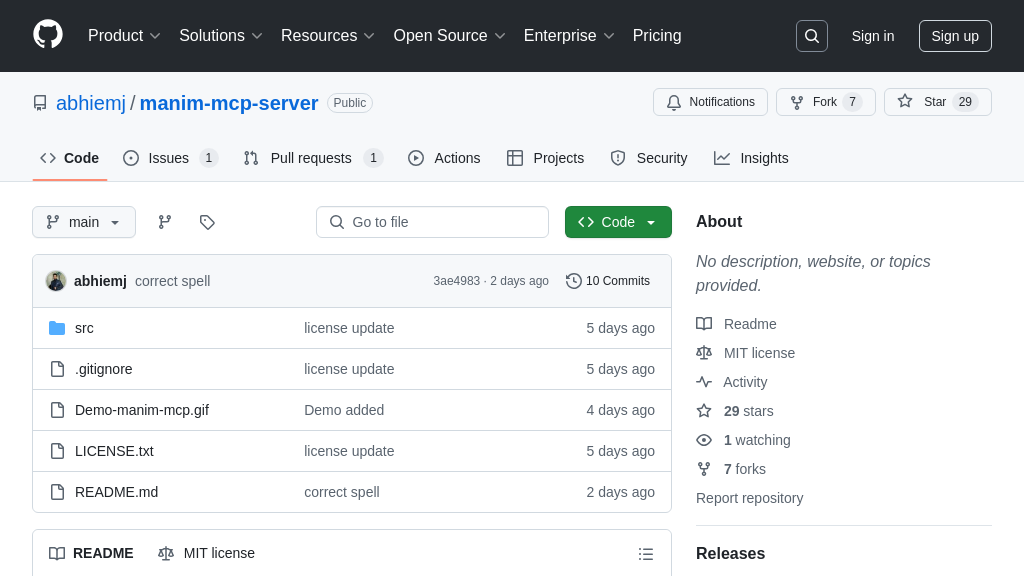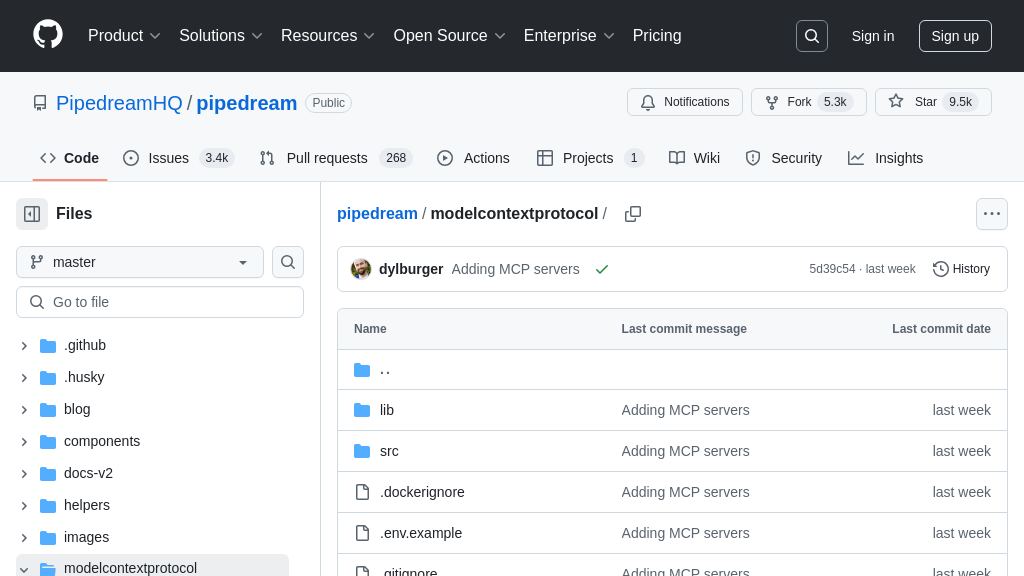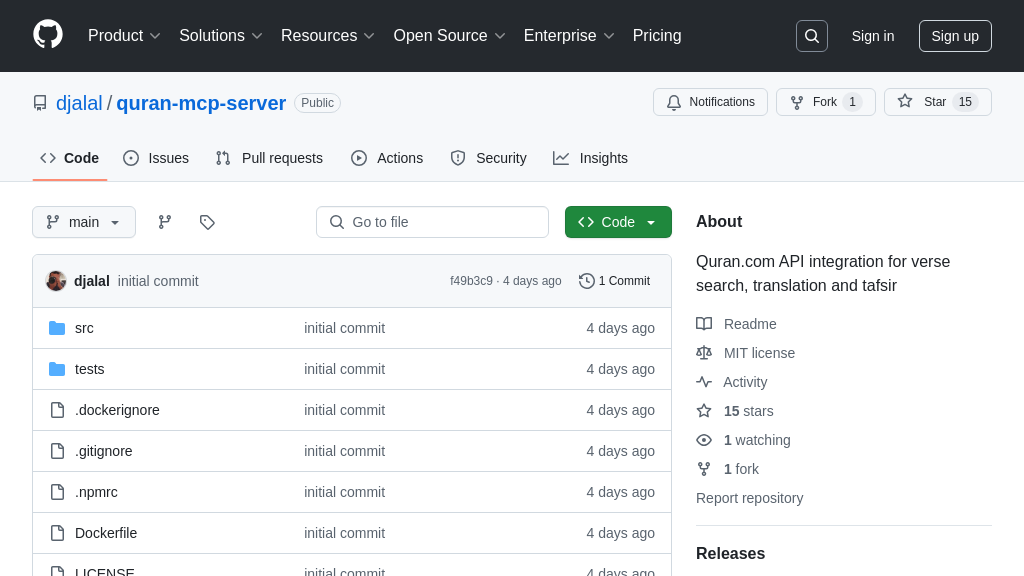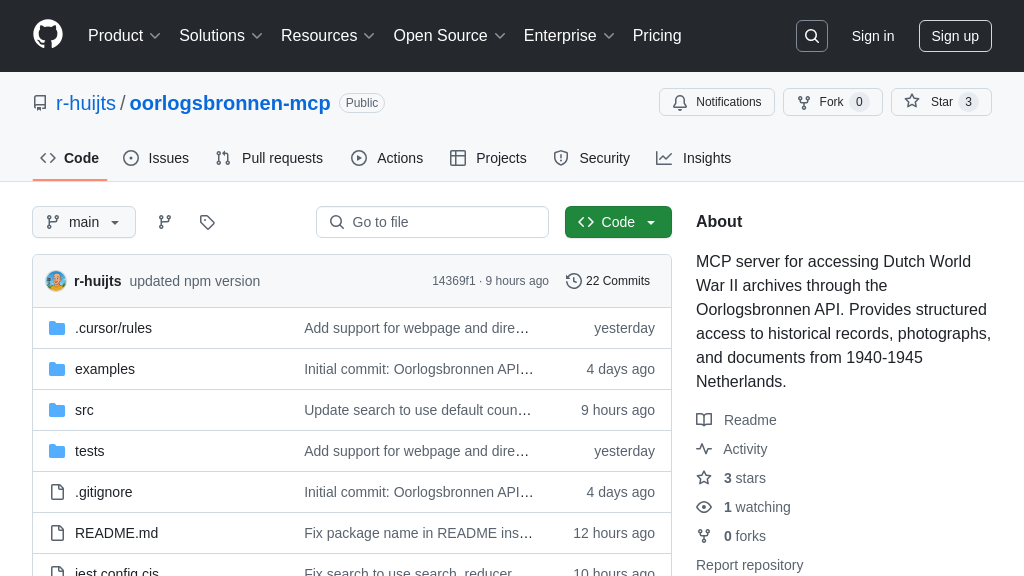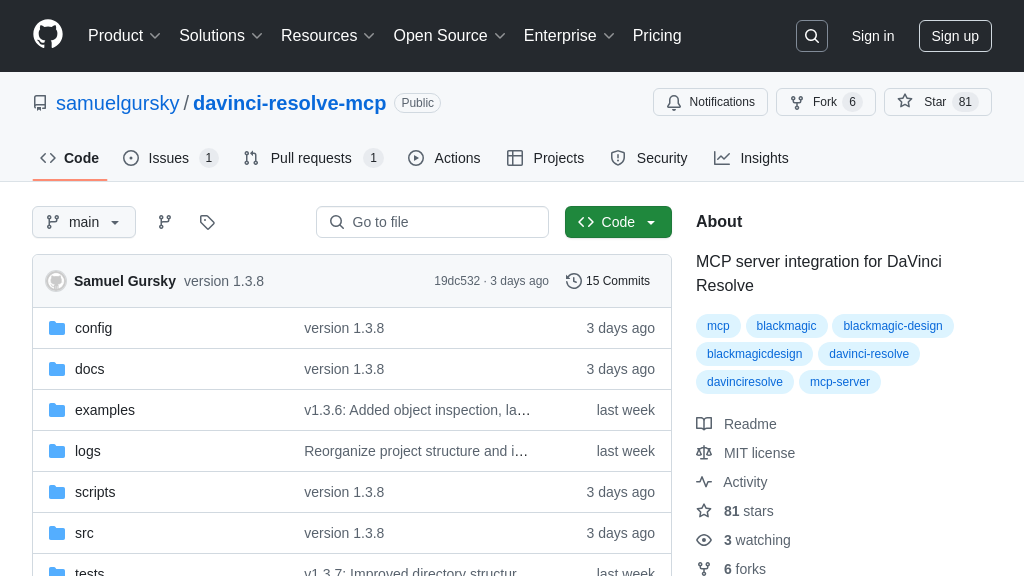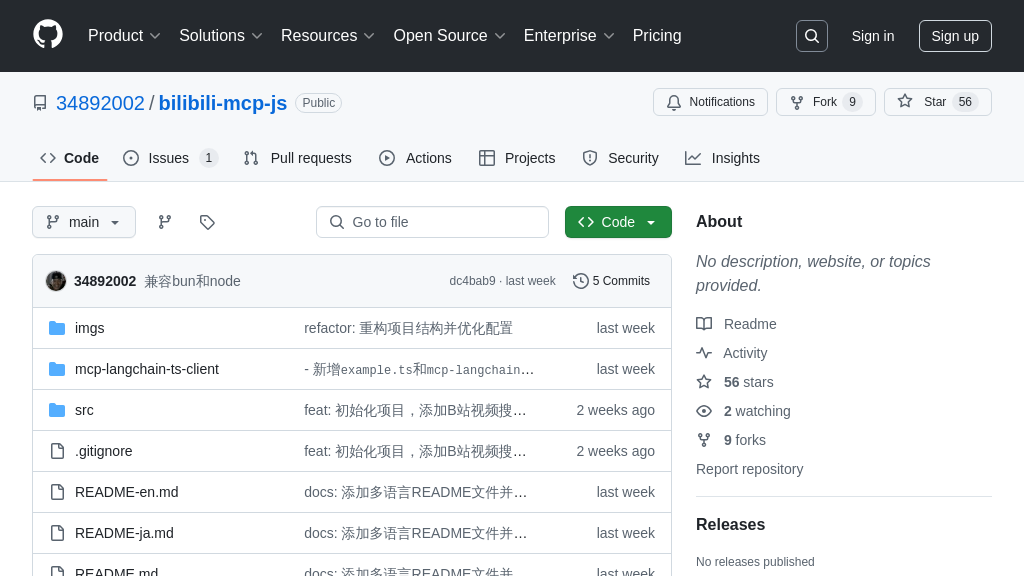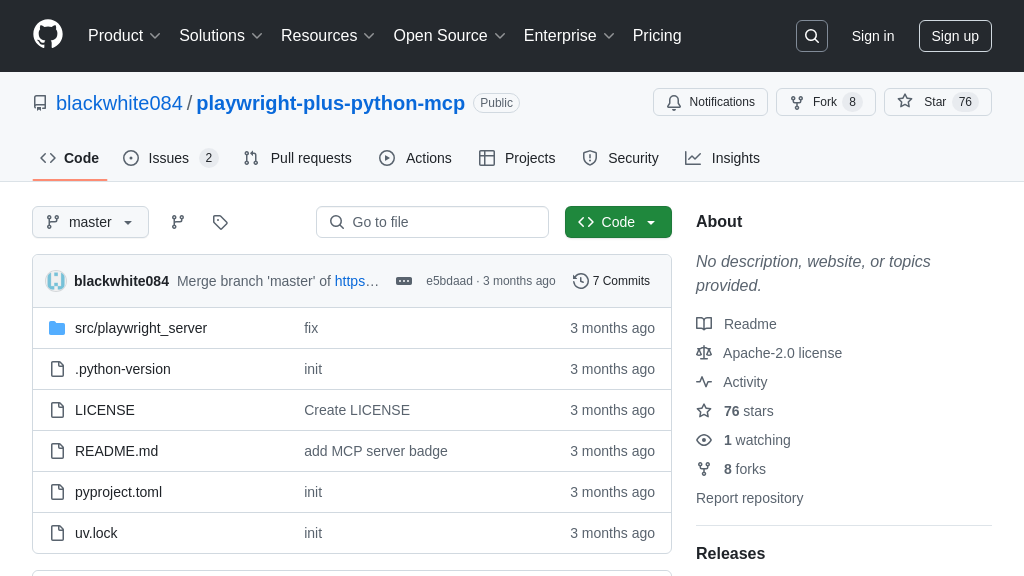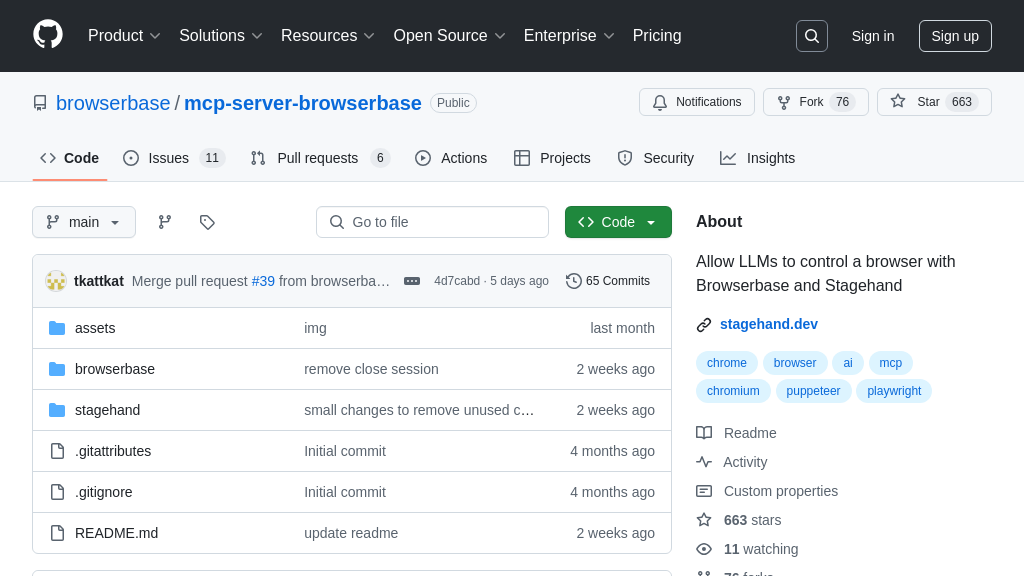langchain-mcp
langchain-mcp brings Model Context Protocol (MCP) tool support to LangChain, enabling interaction with external resources.
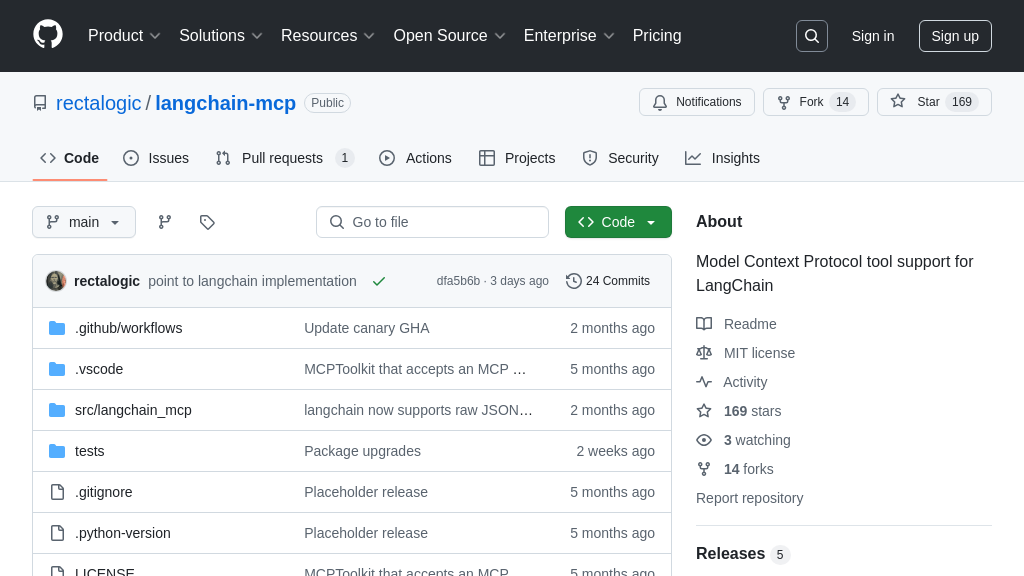
langchain-mcp Solution Overview
langchain-mcp is a crucial tool for developers seeking to integrate LangChain models with the Model Context Protocol (MCP). This integration empowers LangChain to leverage external resources and services through the MCP framework, effectively expanding the capabilities of your AI models. By creating an MCPToolkit with an mcp.ClientSession, developers can initialize the toolkit and retrieve a list of langchain_core.tools.BaseTools, making MCP-defined tools readily available within LangChain.
This client-server architecture, supporting standard input/output (stdio) for communication, simplifies the interaction between LangChain and MCP servers. The core value lies in enabling LangChain models to seamlessly utilize tools defined by the Model Context Protocol, opening doors to a wider range of functionalities and data sources. Integrating langchain-mcp involves creating an MCPToolkit instance, initializing it, and then retrieving the available tools for use within your LangChain application.
langchain-mcp Key Capabilities
MCP Tool Integration
langchain-mcp seamlessly integrates Model Context Protocol (MCP) tools into LangChain, enabling LangChain models to interact with external resources and services defined by the MCP protocol. This integration allows LangChain to leverage a wide range of tools, such as file system access, web search, and database queries, thereby expanding the capabilities of LangChain models beyond their inherent knowledge. The MCPToolkit class serves as the bridge, allowing developers to easily incorporate MCP-defined tools into their LangChain applications. This simplifies the process of connecting AI models to the external world, fostering more versatile and powerful AI solutions.
For example, a LangChain application could use langchain-mcp to access a file system tool defined by an MCP server. The application could then read data from a file, process it, and use the results to inform its subsequent actions. This allows the LangChain model to dynamically adapt to changing information and make more informed decisions. The integration is facilitated through the MCPToolkit class, which handles the communication with the MCP server and provides a unified interface for accessing the available tools.
Dynamic Tool Discovery
langchain-mcp facilitates dynamic tool discovery by allowing LangChain applications to retrieve a list of available tools from an MCP server at runtime. This dynamic discovery mechanism enables LangChain models to adapt to changing environments and utilize new tools as they become available. The MCPToolkit.get_tools() method retrieves a list of langchain_core.tools.BaseTools from the connected MCP server. This ensures that the LangChain application always has access to the most up-to-date set of tools, without requiring manual configuration or code changes.
Consider a scenario where a new data analysis tool is added to an MCP server. Using langchain-mcp, a LangChain application can automatically detect the new tool and incorporate it into its workflow. This dynamic adaptation is crucial for building robust and scalable AI systems that can evolve over time. The underlying implementation involves querying the MCP server for its tool manifest and then creating corresponding LangChain tool objects.
Client-Server Architecture
langchain-mcp leverages a client-server architecture to enable secure and reliable communication between LangChain applications and MCP servers. This architecture separates the client (LangChain application) from the server (MCP server), allowing for independent scaling and maintenance of each component. The client initiates requests to the server, which processes the requests and returns the results. This separation of concerns enhances the security and stability of the overall system.
For instance, a LangChain application running on a user's local machine can securely access data stored on a remote MCP server. The client-server architecture ensures that the data is protected from unauthorized access and that the communication between the client and server is encrypted. The communication between the client and server can be implemented using various transport mechanisms, such as standard input/output (stdio) or HTTP, providing flexibility in deployment and integration.
Stdio Transport Support
langchain-mcp supports standard input/output (stdio) as a transport mechanism for communication between the client and server. This allows for easy integration with existing systems and simplifies the deployment process. Stdio transport is particularly useful in environments where network connectivity is limited or restricted. It provides a simple and reliable way to establish a communication channel between the LangChain application and the MCP server.
Imagine a scenario where a LangChain application needs to interact with an MCP server running on the same machine. Using stdio transport, the application can directly communicate with the server without requiring any network configuration. This simplifies the deployment process and reduces the overhead associated with network communication. The stdio_client and StdioServerParameters classes in the modelcontextprotocol library facilitate the establishment of a stdio-based communication channel.
